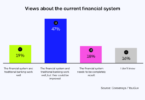The Organisation for Economic Co-operation and Development (OECD) developed a standardized framework for countries to automatically share tax-related information regarding crypto-assets, the Crypto-Asset Reporting Framework (CARF). Forty-eight jurisdictions have signed up. That includes the U.S., UK, many EU countries, Australia and Brazil.
However, most of the heaviest crypto adoption jurisdictions are not OECD members. Only the US is an OECD member amongst the top ten countries in the Chainalysis 2023 Global Crypto Adoption Index. There are five OECD members in the top 20, but Turkey has not signed up for the CARF.
That doesn’t mean reporting will start immediately. For example, the UK will enact the CARF into its laws and expects to start data exchange in 2027. The UK’s Treasury estimates crypto tax avoidance could be as high as 55% to 95%.
“Today we are sending out a strong message that we will not allow criminals to use crypto to avoid paying their fair share,” said Victoria Atkins, Financial Secretary to the Treasury.
Governments are concerned that without banks or regulated intermediaries involved, there’s a lack of visibility into crypto transactions and holdings. Hence there’s the potential for lost tax.
FATF already has rules for anti money laundering reporting. The OECD’s definition of a crypto-asset is broader than FATFs, including any asset used for payment or investment purposes. That includes tradeable NFTs.
The G20 wants to expand CARF adoption beyond the OECD. It asked for CARF to be implemented by the 168-member Global Forum on Transparency and Exchange of Information for Tax Purposes. The Forum was the organization that published a blocking list of 35 tax havens. By 2009, they had all fallen into line.
Now the United Nations Conference on Trade and Development (UNCTAD) sees cryptocurrency as ‘tax havens version 2.0’.






